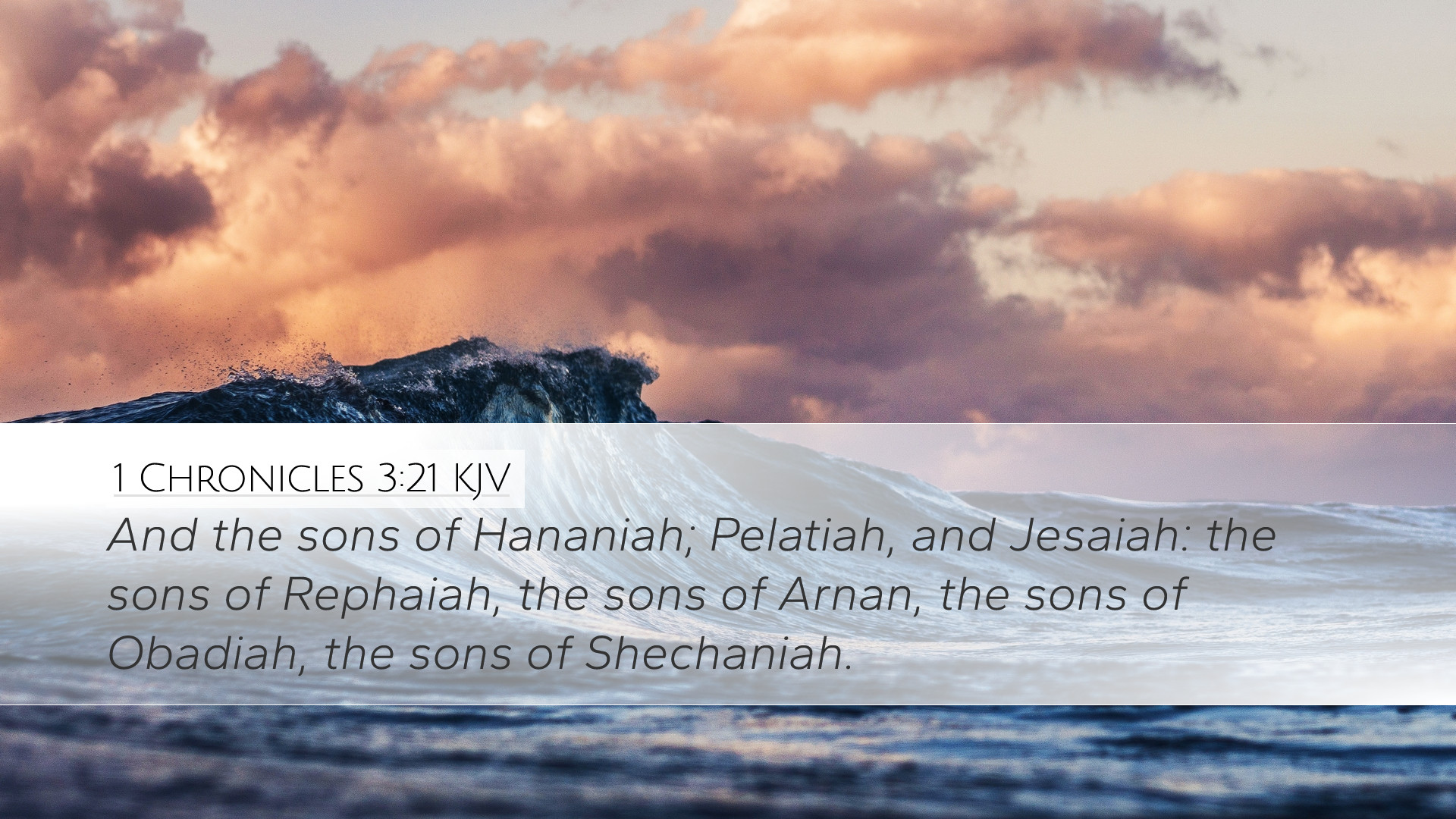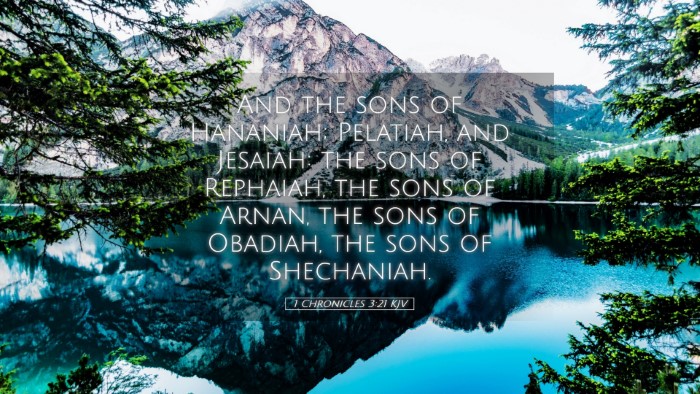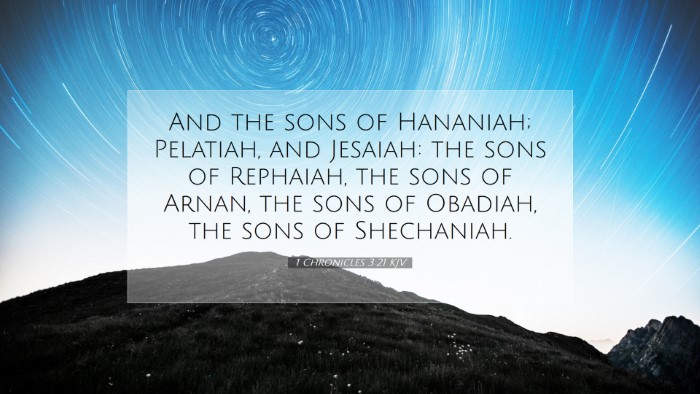Commentary on 1 Chronicles 3:21
Verse (1 Chronicles 3:21): "The sons of Hananiah: Pelatiah and Jesaiah. The sons of Jesaiah: Jotham and Ahaz."
Introduction
The genealogical records found throughout 1 Chronicles serve as an important reminder of the enduring nature of God's covenant with Israel. In this passage, we see a continuation of the lineage of David, which highlights the significance of ancestry and the divine plan for the restoration of Israel. This commentary will draw insights from several renowned public domain commentaries to explore the depths of this text.
Contextual Background
The book of 1 Chronicles is often noted for its emphasis on the Davidic line and the Levitical priesthood. As the Chronicler reconstructs Israel’s history, each name contributes not only to the bloodline of David but also to the larger narrative of God’s faithfulness. In this specific verse, the lineage of Hananiah is introduced within the context of the returning exiles, which is paramount to understanding the post-exilic community.
Verse Analysis
Sons of Hananiah
The mention of Hananiah represents the continuity of the line. Matthew Henry notes that this surname is linked with God’s grace, as the name translates to "Yahweh is gracious." This reflects the theme of grace operating within the community, especially in the context of their restoration and return from exile.
Peltiah and Jesaiah
Pelatiah means “deliverance of the Lord,” which speaks to the hope placed on God’s intervention and rescue for His people. In contrast, Jesaiah means “Yahweh has saved.” Albert Barnes comments that the names signify a remembrance of God’s redemptive work in Israel’s history, which is crucial for the exiles as they reconnect with their heritage during the rebuilding of Jerusalem.
Descendants of Jesaiah
The lineage continues with his sons, Jotham and Ahaz. Their names are significant. Jotham, meaning “the Lord is perfect,” symbolizes righteousness and God’s holiness, whereas Ahaz signifies “he has grasped.” Adam Clarke explains that these names can reflect the contrasting nature of human response to divine call. They suggest a moral lesson for the returnees – to look toward the Lord’s perfection even while being tempted by worldly pursuits.
Theological Implications
- God’s Faithfulness: The genealogy reflects God's faithfulness across generations. It serves as a testimony to God’s unbroken promises to David and his descendants.
- Covenant Remembrance: Each name serves as a reminder of God's covenant with Israel. It highlights not only personal identities but also collective memory.
- Call to Holiness: Jotham’s name reminds the audience of the need to pursue holiness amid their efforts to rebuild society post-exile.
Application for Today
This passage serves as a profound reminder for pastors, theologians, and laypeople alike to consider the implications of lineage and identity within the Church. Believers today are part of a greater lineage of faith that goes beyond mere ancestry; they are co-heirs with Christ and partakers in the promises made to the faithful.
As the community of believers reflect on genealogies, they should be encouraged not only to understand their spiritual heritage but also to contribute to the continuity of faith through their obedience and devotion to God. The modern church must remember and recount God’s grace and deliverance, even as the early Israelites did, in their worship, teaching, and community life.
Conclusion
In summary, 1 Chronicles 3:21 is more than a record of lineage; it encapsulates themes of grace, deliverance, and holiness woven throughout the history of Israel. Each name and relationship speaks to the larger narrative of God's plan for His people, encouraging contemporary believers to embrace their identity in Christ and live in light of their calling. As we study the scriptures in light of both historical context and spiritual application, we are reminded of the continuity of God's purpose from generation to generation.


